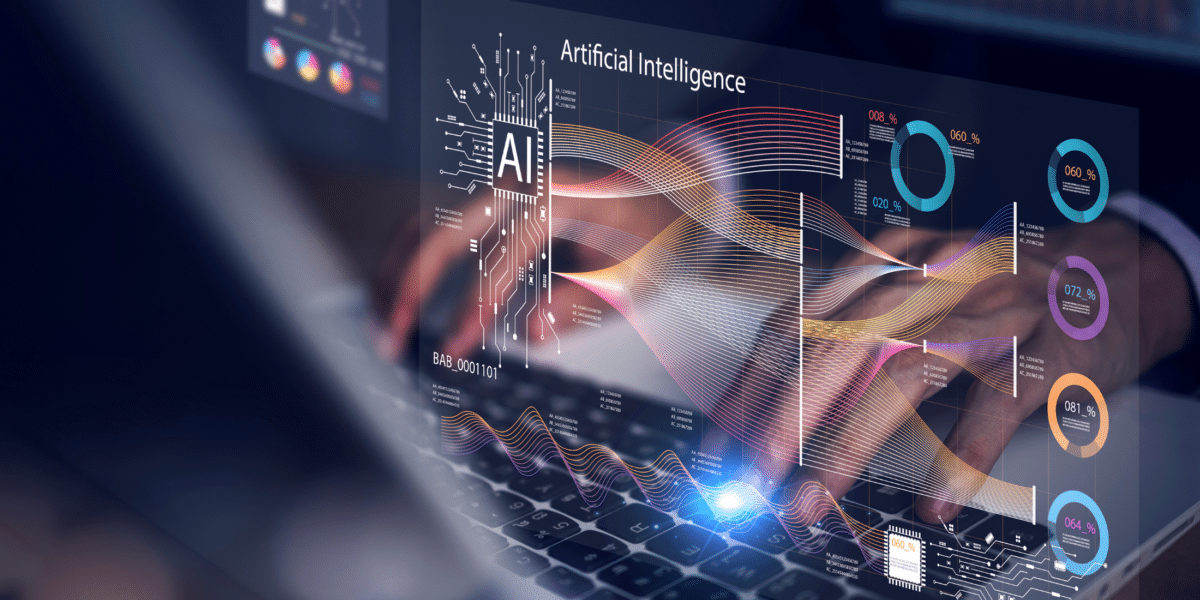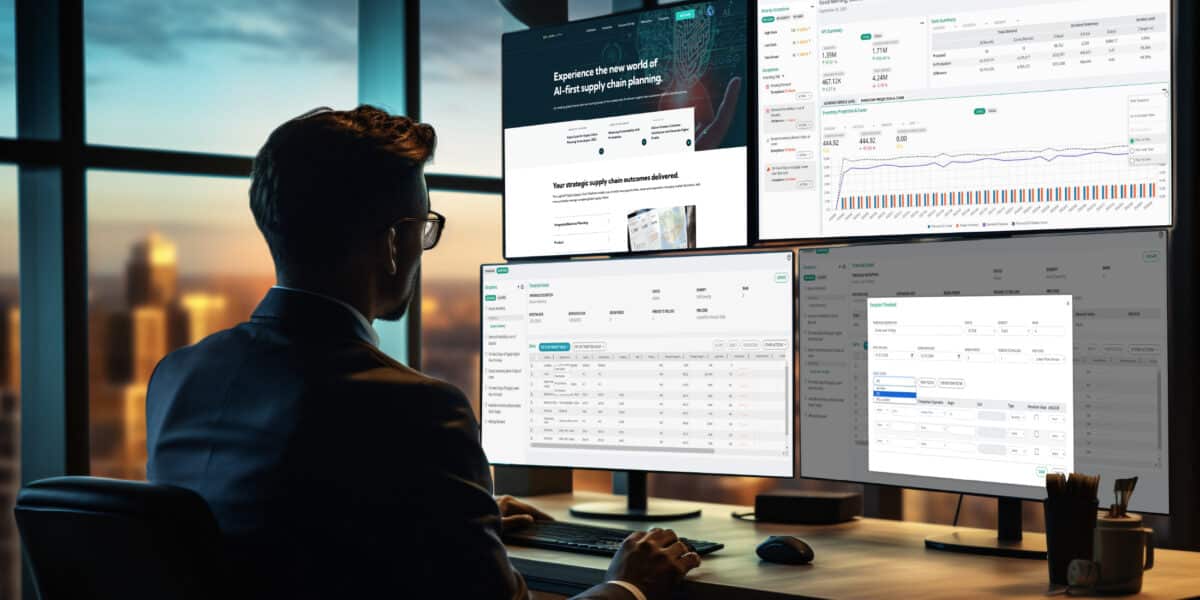
AI, Artificial Intelligence, is a word being thrown around these days to garner attention with little regard for if the usage is accurate. The true trending conversation is deeper and specific to Generative AI. But what does Generative AI really mean, especially for Supply Chain Planning?

Let’s start at the foundation of artificial intelligence. AI is a computer algorithm that behaves like biological intelligence based on historical data and information. AI has been around for decades, utilized throughout supply chain planning software for predictive and prescriptive decision making across all supply chain processes. Artificial Intelligence is expected to be part of your software functionality.
What makes the current conversation about AI different from the past? The advancements in technology, in particular scalability and faster access to numerous forms of data, have enabled and created exponential growth in AI adoption across supply chain organizations. Machine learning, deep learning, neural networks, generative AI, & reinforced learning are just the top five areas where AI is being leveraged. Consider, the recent advancement of Generative AI used for ChatGPT, a disruptive, conversational digital language that can inform, assist, advise or even automate supply chain processes. Companies can make faster and better decision making across their entire organization including its partner and supply eco-systems.
Three Ways Generative AI will Advance Supply Chain Planning
Awareness. In its simplest form, it allows users to ask a question and get information back. For example, a supply chain planner may ask the system to “Show me where I might have a single component that is part of these eight items?” While you can answer this without Generative AI with a query, the response requires a data analyst to review and analyze that query.
Generative AI provides a concierge mode for executives, decision makers, and layman users. By transforming the gymnastics exercise of searching for answers to conversational asking the user is instantaneously presented an answer which allows for further probing questions. Where you may ask the internet a question fifty different ways and never get the right answer, Generative AI can decipher and create bridge between the asked question and the desired answer.
Assistance. Generative AI for supply chain planning is an assistive technology allowing people to use their human language in a digital process. Think of it like a planner’s co-pilot. Planners can ask prompts like “make a forecast” to assist them in developing plans more quickly and accurately.
While supply chain planning experts have learned how to query, develop structures, navigate data, many of these folks are aging out of the industry faster than new talent can get up to speed. The new generation coming does not have the same expertise or experience with data analysis, but AI can allow them to get up to speed.
Advise. Traditional AI utilized in supply chain planning has focused on simply providing data results and planners would make decisions accordingly. Generative AI can take data further by interact with other AI methods and create recommendations for what products to promote, how much inventory to have on hand, and where to store it. Further, generative AI based systems could provide insight data about the short-and long-term impacts (or consequences) of potential decisions. It’s like guard rails for data analysis.
Planners ultimately can increase their forecast accuracy exponentially by combining the system advice with their own context of the market and business plans.
The question is no longer whether Generative AI will be part of every supply chain planning process but when. The supply chain industry has seen a lack of talent interest, primarily due to lack of awareness of the field and the demand for tech workers. While this can be concerning for the health of the industry, Generative AI can help to positively curve that trend and bring more talent to the market. Just as traditional AI is expected as part of your supply chain solution today, planners will soon expect the see power of generative AI as well.


